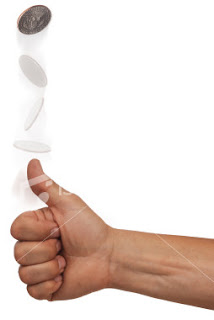RS5: GDP and its Real
Significance on Society
Even
though we should know how rich our country is compared to others, there is no
way to find out the definite answer.
However, GDP is one way to somewhat solve that problem. GDP stands for gross domestic profit, which
is the total profit that a country brings in during a year. Although GDP is not exact, it paints us a
brief picture of how our country is doing economically. Currently the United States leads all other
countries with a GDP of 15.09 trillion dollars.
GDP
is any product or service that a country produces that creates profit for
it. For example, Mary wants to hire a
cleaning lady. Once she hires that
cleaning lady she is contributing to the US GDP. However, if Mary ends up cleaning her house
herself, she is not contributing to GDP.
GDP has a select few rules: it must be a new product, has to be made in
the country, and cannot be counted multiple times. If a ball is made in China, most of the
profit will contribute to China’s GDP, but the profit that the store makes from
selling that ball will go to the US GDP.
Also, if person buys a box of popcorn, the GDP is only counted once at
the final purchase. The company who buys
the corn from the farmer does not contribute to the GDP, only the consumer
does.
In
the United States, there are many things that contribute to the GDP. Manufacturing contributes to 12% of the
country’s GDP, and health care contributes to another 16%. However the biggest contributor is real
estate. When you drive past a
construction site that is building a new housing complex, each one of those
houses will end up contributing to the countries GDP. With the constant increase in our population
and the need for more building, real estate is the one factor that keeps our
GDP so high. The only limitation here is
that old houses do not contribute as much.
For example, when my parents bought my house they were not contributing
the GDP in 1996 because the house was not brand new and was made in a different
year. However, there is such thing as
imputed rent that does contribute to the GDP.
Imputed rent is a monetary “rent” amount that the government places on
your house as if you were paying rent.
So if the government said that my house was worth $3,000 dollars in rent
every month, $36,000 of imputed rent would contribute to the GDP for the
year.
The
gross domestic profit of a country is only a brief look at how the country is
doing economically. Although it gives us
a figure of the profits the country is bringing in, it is not an exact or
perfect way to examine the countries economic standing. Currently the United States leads any other
country with the highest GDP of 15.09 trillion dollars, but that does not mean
that Americans are better off than other people. GDP is just a glance at what the country is
bringing in during the year, and is not the whole picture. Even though it would be great to have a
definite number, there is no way to figure it out when a countries economy is
so large and complex.










